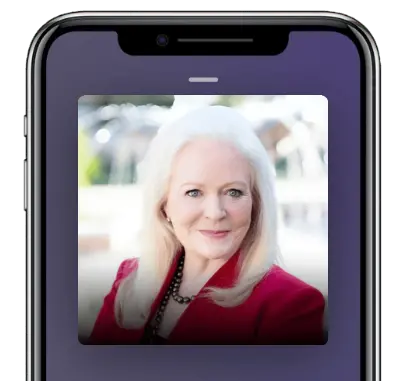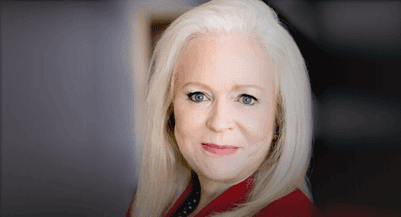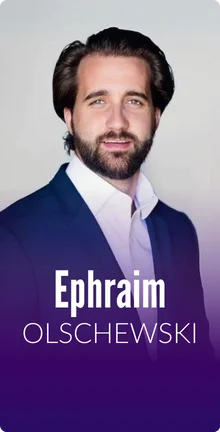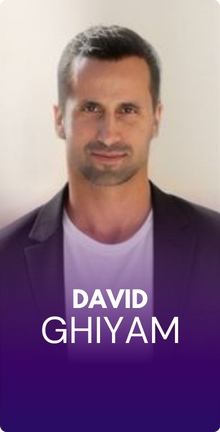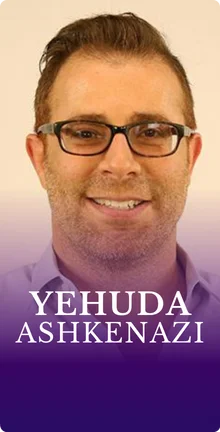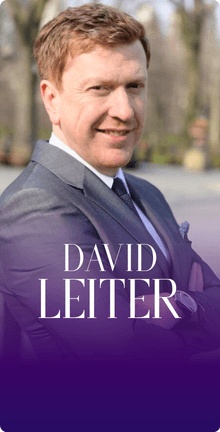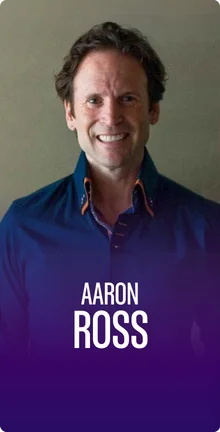Sharon, it’s so great to have you on the show.
Stephan, I’m delighted to be with you. Thank you for inviting me.
I would love to regale our audience with the amazing journey that you went on with the creation of the Outwitting the Devil book that was sitting for 70 years or something as a rough manuscript. You brought it to life and it’s changed millions of people’s lives now. Many people I would guess have not heard of that book. They’ve heard of Napoleon Hill’s Think and Grow Rich but not of this hidden away manuscript that became Outwitting the Devil, which also became a bestseller. Could you share that story?
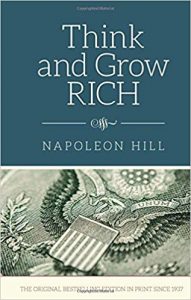
Talking about it, it was an awesome experience. I’m sure many of your audience know Napoleon Hill in the book, Think and Grow Rich. If they don’t, I definitely suggest that they get it on the reading list because even though it was published in 1937, it’s as valid now as it was back then. It was a culmination of Napoleon Hill’s life. He was introduced to Andrew Carnegie and he challenged Napoleon Hill to go out and meet all his friends, the richest men in the world. At the time, women were not in business and they believed that all of us rich guys have something in common and our recipe for success is similar. He challenged Napoleon Hill with researching them. He spent his life interviewing these individuals and doing a thesis. That’s why the book is absolutely strong now as it was then because it’s not one man’s philosophy. It’s like a doctoral thesis on success.
Surprisingly, people that I ask, “Have you read Think and Grow Rich?” They’ll say, “Yes, it’s a life-changing book,” and so forth. I go, “Can you name the thirteen principles?” They’re like, “There’s one about masterminds and there’s one about sexual transmutation or something like that. I can’t remember anymore.” It’s a powerful book and one that you can get lazy about and rest on your laurels and not go revisit it. If you can’t recite the thirteen principles, you need to revisit the book.
When he released it in 1937, it was an instant success, but he was frustrated because he said, “Even though people know what they’re supposed to do to be successful, they don’t do it.” Many people probably are feeling a little busted right now. I am sometimes. We know what we’re supposed to do but we don’t do it. There are lots of reasons for that. It can be fear. It can be laziness. It can be lack of passion. He was frustrated so he sat down. Even though it took him so long to write Think and Grow Rich, in a few short months, he wrote the book Outwitting the Devil. It was an introspection into his own life. Things where he said, “Here I am. I’m the guardian of all this incredible information to be successful and yet I, myself, have these downtimes.” Outwitting the Devil, the name of the book scared his wife to death. She was working for the Methodist Church at the time and so she forbid it to be published. It got locked away literally in a vault for 73 years. When I had left the Rich Dad Organization, the Napoleon Hill Foundation reached out to me to help them during the financial crisis of 2008 to revitalize the teachings of Napoleon Hill.
It was the month we were releasing my very first book with them called Three Feet from Gold that I got another call from the Napoleon Hill Foundation CEO, Don Green saying, “I have this manuscript because it had been locked away. Napoleon Hill died in 1970. His wife died later and then her sister died. Finally, the manuscript found its way to the foundation. I have this thing and I don’t know what to do with it, but I think it needs to come out.” He sent it to me. It was the manuscript in‘38. It was typed up on a manual typewriter. It had Napoleon Hill’s handwritten notes in the margins. I felt incredibly honored to have the opportunity. I was only the fourth or fifth person to read the manuscript. I ran over to San Diego where I like to write so I can see the ocean.
In a few hours, the manuscript was like a tidal wave for me. It helped me personally in such a great way to understand the impact that so many of us have from the fear that we don’t even know exists. It’s inside us internally. It helps people understand that it is important to face that fear and this book helps you do that. It helps you recognize that phase and get past it. It’s incredible. His wife forbid it to be published and was locked away, but I think there was a higher power at work because Think and Grow Rich had the opportunity to impact millions of people’s lives. Over 100 million of them had sold around the world. Now Outwitting the Devil is coming out at a time where the younger generations might need a little bit of swift or kick in the you know what. It’s a little in your face but it has triggered a reignition of the teachings of Napoleon Hill. I’m incredibly honored and humbled to have played a role in bringing it out.
At the end of the day, you're either a master of your money or a slave to it. Share on XHow did you make your mark in that book yourself? What are the hallmarks of Sharon showing up in Outwitting the Devil?
Thank you for that question because it’s something that is an important question. For those who are diehard Napoleon Hill fans, I would never want to put myself in a position of editing his work. What I had the opportunity to do is to bring his work out. At the same time, because our goal was to introduce him to younger generations, I wanted to parallel and compare the time he was writing the book in 1938 to now. How can I accomplish both missions? For those diehard Hill fans, they can read the book and skip over my comments because my comments are in a different typeface. They’re bolded so that people who just want to read him can go right through and skip over mine. Individuals who have never understood him or knew his work had the opportunity to read my comments that compares what he’s sharing to what’s happening now. Adding my own experience to it to help enrich and bring it to another level but to also take the work and make it relevant to contemporary readers. That was the honor that I had.
Sometimes people complain that I messed up Hill’s work and it’s like as Hill says in the book, “Are you going to complain or you’re going to derive benefit from the information that’s there?” My goal has always been to share his work. Had it not been for my participation, we probably wouldn’t have seen the book because the foundation was concerned about bringing it out. I had that honor. I had that incredible opportunity, but it was also very humbling to be part of it. It’s my goal to make sure as many people, particularly the younger generation have the opportunity to read it and be inspired by it, to be able to break through the shackles of fear and things that held them back. Usually, the things that have held them back are self-imposed and we need to get past that, recognize it and be able to live the life of success that we deserve.
One thing that I’m reminded of when you’re describing this as for the younger generations, especially for small kids, it occurred to me that one of my good friends in the coaching industry who’s been on this very show, Ephraim Olschewski, an incredible coach, asked his own children if they’re having a tantrum or they’re acting out or being in a non-resourceful place, “Are you complaining or are you creating?” It’s like that practically comes straight out of the Outwitting the Devil book.
Your brain cannot hold negative and positive at the same time. Ask yourself, “Which do you choose? Are you choosing negative thoughts or are you going to reframe them and choose them as positive?” That’s what Outwitting the Devil helps you do, to recognize that and be able to know how to reframe it, how to position yourself in the position of highest potential.
You said that when you first read the manuscript it touched you deeply and within a few hours it had shifted you. Could you go into a little more detail on what that shift was and what part of the book brought about that shift?
Each of us has our own journey. At that point in time, I was at the height of my success. We’d already been through the drama of leaving Rich Dad and seeing what was happening in the world, the economy and seeing so many people struggle. Reading the book, it was such an incredible and simplified explanation of things that we put ourselves through and how to grab the opportunity to release those shackles of fear of myself. I think about it and I look back and it talks about how I grew up in the church but was your religion taught to you through faith or fear? It was daunting to me to recognize that having grown up in the Southern Baptist Church as much as my faith is still important to me now, there was a lot of that teaching that I had that was through fear, not faith and that impacts you.

Growing up, what was your teaching about money? Was it negative or was it positive? Were you brought up in a house where money didn’t grow on trees? This was hugely important to me and it’s something that I use every time I speak now with people. Understanding that if you grow up good people are saying, “I can’t afford it. We can’t afford it. Money doesn’t grow on trees, pinch or pennies.” All of those things are negative comments. As you grow up you hear money negative, money negative, money negative. It starts forming that mentality of scarcity. By recognizing that that’s what happened to you as a child, you can get past it and say, “I’m no longer going to have this mindset of scarcity. I’m going to change my point of reference instead of saying I can’t afford something, say how can I afford it?” When you do that, you start changing your thought process from one of scarcity to one of abundance.
Ask yourself, “How can I afford it?” instead of closing your mind because, “I can’t afford it,” closes your mind to some negative statement. You want to get into a dark room and get smaller. Instead of doing that say, “How can I afford it?” It opens your brain. It triggers your entrepreneurial spirit. You want a way to determine how you can afford it. That creativity and imagination are what helps us go forward in our lives and that’s something that is very important. The other thing about the book that was hugely impactful to me, it talks about the concept of drifting and it really is. He talks about there are 2% of the people in the population who know what they want. There are non-drifters and they go after it. The rest of us just go with the flow, have whatever it takes, allow life to push us around instead of choosing and driving based on our own burning desire.
It made me understand. I see so many people who are struggling because they aren’t finding their passion. They aren’t setting goals. They’re allowing life to beat them around. That’s something that once people can recognize, “I am drifting,” they can do something about it and say, “How can I change from drifting to having that definite purpose to be able to go forward, to have that faith in myself?” The book helps. It takes you by the hand. It takes you through that process of how you can start framing your desire and understanding the importance of your environment, understanding the importance of adversity that happens to all of us. You’re going to learn from it and move forward. All those things were clearly framed in a way that impacts so many people. I’m honored that we have had such the reaction that we have.
The concept of drift was a big a-ha for you. What did you go out and do differently? What shift did you make or change in your business or your relationships or your life that was a direct result of reading that manuscript?
There were several different things. It helped me realize that there was much more for me to do. Many of your audience may not know my background. Having built the Rich Dad brand globally when I made the decision to leave Rich Dad, I thought that was my legacy. I said, “No, I need to do more. I need my legacy outside of Rich Dad.” Then being invited to be on the President’s Advisory Council for President Bush and Obama helped me establish the fact that there is a Sharon outside of Rich Dad. I was still in the throes of feeling like Rich Dad was my mark. Having the opportunity to step into the Napoleon Hill Foundation and Think Rich brand was incredible was something that helped me understand that there was more for me to do. Three Feet from Gold was a great opportunity to cement that relationship. Having the opportunity to participate with Outwitting the Devil helped me understand that each of us has a path in life.
Each and every one of us has the right, the opportunity, and the responsibility to create a world that you want to live in. Share on XWe need to be open to those opportunities and what an incredible opportunity it was for me to be able to partner with Napoleon Hill who was long gone but honor him and bring his word out that could impact millions of people. It helped me open my mind to the fact that we are all vessels and we have things to do on Earth. In addition, reading the book helped me understand the self-destructive habits that I had that I was able to release. I was able to let go of things that had bothered me from my past or the anger and the fear that I still had from having a ten-year partnership that broke up. I lost 50 pounds as a result of being involved with Outwitting the Devil. I still read the book because it helps me every time you see something. Like Think and Grow Rich, every time you read it, you find something that has always been there but it didn’t speak to you until this time.
I can totally relate to that. I relisten to the podcast episodes that I’ve recorded and I listen multiple times to some of them. I’m like, “There’s something totally new I got out of that episode.” When I’m interviewing, I’m in a different mode. When I’m listening to gain insights and new ideas, a different part of my brain is activated and engaged. I would love to have you describe how the title Outwitting the Devil and the concept of drift relate to each other. Explain where the drift comes from or who it comes from.
We talk about fear and drifting as something where somebody has given up driving their own destiny. As Napoleon Hill says in the book, Outwitting the Devil, it’s an interrogation of the devil where Napoleon Hill was helping him release and show how he controls our lives. In the book, Napoleon Hill says to the reader, “You can think that I’m talking to the real devil or man-made devil. It doesn’t matter. Will you derive benefit from what I share?” The whole concept of drifting, the devil in the book says, “I control men’s minds. There are only a few people’s minds I can’t control and those are the people who are non-drifters. Those non-drifters who know what they want and they’re going after. They’re focused and they’re goal-oriented.” To read Outwitting the Devil and take it to heart and start getting rid of those fears allows you to become a non-drifter. The whole concept of Outwitting the Devil, the book and the concept of drifting are one and the same.
It’s one of the primary tools of the devil, drifting, that allows the devil to control us and to manipulate us. When we allow ourselves not to do something horrible to somebody else but to be in autopilot or going with the flow, being asleep is the freeway to the devil, the highway to hell. Is that a good summary?
Yes, your term autopilot is very much apropos. Ask yourself, are you proactive or are you reactive? Having played a role in Outwitting the Devil has helped me in so many ways. I lost my youngest son in December of 2014. You talk about throwing your life on autopilot. I have something that I’m launching called The Play Big Movement because I always played big my entire life. When I lost my son, I went into autopilot. Everybody in the audience had something that has stopped us in our tracks. When that happens, we do tend to turn into ourselves and the fear and we collapse. We allow ourselves to become drifters. We allow ourselves to stop living life but having life pass us by. Having been involved in Outwitting the Devil has helped me get through that experience. I will never get over it. I made the decision that I needed to either retire or figure out what’s happening. I’m launching a whole new brand called The Play Big Movement because it’s time to play big again. People who are truly playing big are those people who want to be number one in their field, live their legacy and create maximum impact. It can be within your business, within your job, within your personal life to live life instead of letting it pass you by.
There are doors in your life that you need to close so that other doors of opportunity can open for you. Share on XI’m very sorry for your loss. I have no idea what that’s like to experience a loss of a child. I have three adult daughters and they’re all healthy. My condolences, first of all. Second, I am curious with some of those terminologies like we’re all vessels and are you proactive or reactive. Would you say that maybe there’s an inspiration for this manuscript might have been Kabbalah? Those are Kabbalistic terms, reactive, proactive, vessel. Those concepts, are they from the book or are they from your personal philosophy?
When I’m talking about proactive versus reactive, I’m talking about my life on autopilot. Those are steadfastly Sharon Lechter. Understanding and recognizing that I allowed my life to stop, I didn’t feel very good about it. I think that I was partially inspired by my son. I am very spiritual. I believe we all have a Divine guidance. I pushed and shoved and resisted it for a while and then I finally said, “Make me a vessel,” and so that’s part of allowing a higher power to work through me. I probably had a few spiritual nudges from my son saying, “Get over it, mom. There’s more for you to do.” Each of us has an opportunity to chart our own course. If we don’t take that road less traveled, if we don’t take control and be proactive, then we aren’t in charge of our destiny. We’re letting someone else decide that. Giving enough control is not a healthy thing and it certainly isn’t going to let you receive the blessings that are there for you.
There’s something in Kabbalah, which I’ve been studying now for years and I love it. I’ve had three different episodes on the show with different Kabbalah teachers that I’ve worked with. One of my favorite things I learned from Kabbalah is the Proactive Formula, which is a five-step process. I have the card in my wallet. I don’t need it in my wallet because I memorized the five steps. It’s about if you’re in conflict, you’re in a situation that is a challenge, what do you do? You follow the five steps if you’re going to be reactive. If you choose to be on autopilot, if you choose the drift, then you’re going to choose differently. You’re going to go through the five-step process, which starts with pausing first of all. That allows space between the stimulus and your response.
After step one of pausing and reflecting on your reactive nature, step two is to recognize that the person you’re in conflict with is not the enemy here but your own reactivity to the opponent. The internal opponent inside your head is that enemy in this situation. Then step three is to recognize that this situation, this challenge, this conflict was brought to you by the Creator, by God, by the light for you to grow. Step four is to ask the Creator for a proactive solution or action to take, multiple proactive actions. Then step five is to take that proactive action. It’s a pretty simple process but when you are in the heat of it, if somebody cuts you off on the freeway or whatever, you’re livid, this is very powerful to remember, “I’ve got a process. I can do that.” Take that deep breath. Recognize that, “I’m being reactive here or I have the potential to be reactive but I’m going to choose a different path.” It’s so freeing. It’s amazing. I don’t know if you’ve heard of that before.
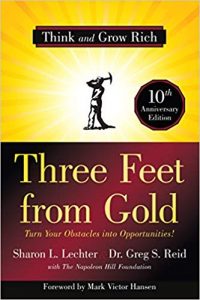
No, I have not. I will definitely look it up and study it. In our book, Three Feet from Gold which was my first book with Napoleon Hill Foundation, one of the words of wisdom that we shared was we interviewed many of today’s successful people who stayed successful through the downturn in the economy. We wanted to understand what their secrets to success were and how they got through the downtimes. One of the strongest ones that I like to share is don’t make decisions in the valley. That’s being reactive. When you are in a high state of emotion, your intelligence is in a very low state. Part of that is to take a pause. Give yourself time to get out of the high-stress environment. Allow it to overcome you and know what the problem was. Then as you start seeing the light, you have the opportunity to be a little bit more rational about the decisions you make.
I want to address this topic of Rich Dad. For those of our audience who are not familiar with what you’re talking about there, that’s the Rich Dad Poor Dad book and the organization. You are a co-author of the Rich Dad Poor Dad book and series. How many books have sold of Rich Dad Poor Dad?
The whole Rich Dad series, I was the CEO and owner of the company with Robert for over ten years. We hit 27 million books, by now probably with over 30 million Rich Dad books have been sold around the world.
How did you work with Robert to get that first book out the Rich Dad Poor Dad book?
It goes back certainly to the early-mid ’90s. He had an idea for a board game and he sought out the top intellectual property attorney who happened to be my husband. He walked into his office with a piece of paper rolled up with crayons on it with an idea for a board game. I met him at the first beta test my husband invited me to come. The game was Cashflow. I volunteered because of my background. I helped grow the first electronic children’s talking book industry. I had connections, opportunity and knowledge on how to get the board game to fruition. I helped get that done because I was interested in the topic. I believed in the importance of financial literacy, financial education. My background is I’ve been a CPA for many years and I had published it in my background.
Our own son had gotten a little credit card debt, so I was already committed to financial literacy and financial education back to 1992. This was ’96-ish and I met him. As I was helping him formalize the game, he wanted to charge $200 for it and I said, “We probably need a brochure to share the philosophy.” At that point, he asked me to become his partner and Rich Dad Poor Dad was written as a brochure to sell the game Cashflow, most people don’t know that. We never expected to write more than one book. We had such a huge response from the book itself that we ended up saying, “We’ll do a trilogy.” We did Rich Dad’s Cashflow Quadrant and Rich Dad’s Guide to Investing thinking that was it. There was still a demand for more. Over the ten-year partnership that we had, we wrote fifteen books together. Then I shepherded a whole new series called Rich Dad’s Advisors where we had other authors who were experts in their fields write to books about their area of expertise.
We had multiple games, multiple other programs, infomercials and we’re able to explode globally into over a hundred countries for over 50 languages. Our success, I don’t think we can take credit for it. People found a message that they needed at that time and they shared it with other people. I share with my friends, we were definitely a huge viral success before the internet because we launched Rich Dad Poor Dad in April of 1997 and it was before Amazon. We were on the New York Times bestseller list in excess of seven years, which was a pretty amazing accomplishment.
I’ve read the Rich Dad Poor Dad book and I’ve found it an eye-opening. I had no idea at the time that I read it that liability was anything that takes money out of your pocket month after month. I thought, “A house, that would be a good asset, a good investment.” No, it’s a liability. Unless it’s a house that you bought to then rent out and that puts money in your pocket. That was a huge wakeup call for me. What would be one of the top concepts from the book that you would want our audience to get?
Certainly, not keeping it to the book Rich Dad Poor Dad is the top philosophy that I teach and that is most of us are taught through school that our income is what’s important. Unfortunately, too many of us end up in debt and so debt tends to control us. At the end of the day, you’re either a master of your money or a slave to it. My number one goal is to get people to understand the importance of having assets. My favorite word on Earth is assets. The one thing that all wealthy people have in common no matter where they live, no matter what language they speak is that they own assets and assets that generate income. When I first met Robert, he had a very small net worth that he was making about $100,000 a year off to small apartment complexes. His annual living expenses were much less than that. That story is shared in the book, Retire Young Retire Rich. It was that concept of understanding the ability to generate and build businesses. The Cashflow Quadrant talks about the left side of the quadrant which is employee self-employed. That’s where you’re exchanging your time for money. The right side of the quadrant business owner-investor means that you are owning systems, businesses and investments that are making money. They’re working hard. That’s where you want to be focusing your energy to create assets that will generate revenue.
The definition of financial freedom is not a net worth number. It is when the income from your assets exceed your monthly expenses. That’s when you are financially free. That concept is where I grew up and I grew up in a very entrepreneurial home. It was a concept that’s not taught in schools, that’s where my passion comes from. We hear, do what you love, love what you do. My passion came from anger and I’m as passionate now as I was back in ’92. That is because we need to teach our children about money. Money is a life skill and we’re still not doing it. It’s so important that people understand that it’s not about income, it’s about assets. When we can generate enough assets and understand that they’re working for us, then you can truly be free.
I love what you shared on one of your events that your favorite word is assets. Then you’re followed shortly by your second favorite word, royalties. Then after that is leverage. That was funny.
Those three words, they say it all: assets, royalties, leverage.
You may have all kinds of stress and chaos in your life, but you learn from all of the things you go through. Share on XCan you define royalties and leverage from your perspective for our audience?
Royalties are the income from the products of your mind. For me, it would be books. It can be patents. If you can create something, you get royalties or licensing revenues from that. In that sense, I have my income from my real estate investments as well. Royalties typically are something that are what you get from writing books, writing movies, plays, all those things. That’s something that shows that you truly have created or built a product from your mind thus generating revenue for you. That can help create generational wealth as well.
Leverage is understanding the importance of the difference between good debt and bad debt. One aspect of leverage is having good debt, so you have a rental property. Maybe you have a mortgage on that rental property, which is debt. It’s a liability. If the income from your rental exceeds what you have to pay for that rental, then that’s good debt because it’s allowing you to continue to build your portfolio. Leverage also comes from systems, using other people’s money, other people’s time, other people’s resources. That’s also what I teach in my Play Big course, which is The Play Big Movement. That is understanding that to get from a financially broken to survival, you do have to focus on income and expense. To truly get from survival to truly mean financially free, your focus needs to change on buying, building, creating assets and understanding the power of leverage, understanding the power of royalties and the power of assets. So many people miss because they’re in the weeds on trying to make it from one month to the next. We have to open their vision to the fact that it’s never been easier to be successful, it’s never been easier to build businesses. Everyone has the opportunity because the internet, the playing field has been leveled. Each and every one in the audience, you have the right, the opportunity and the responsibility to create a world that you want to live in.
Part of what you did to do that for you and for others was not only writing the books but being part of the President’s Advisory Council on financial literacy. How did you help get the word out about the value of assets, royalties and leverage?
When we first moved to Arizona, we moved here in 1991. Our eldest son went off to college in ’92. His first semester, he had a good time but he got himself into credit card debt. We didn’t even know he had credit cards. I was devastated that credit card companies were welcoming kids to campus with offers of free pizza, free money, free T-shirt. That was December of ’92. That’s when I dedicated the rest of my life to financial literacy, financial education. Fast forward a few years on ’96 was when I met Robert Kiyosaki and Rich Dad ten years later. When I left Rich Dad, I knew I had to establish Sharon Lechter separate and apart from Rich Dad. That was when I walked away from my babies and I made that decision because it was the right decision for me.
Writing a book is like having a child. Any woman in the audience knows that it’s difficult but it was the right decision for me. I had to reestablish the Sharon Lechter brand outside. I wasn’t sure how I was going to do that. I tell people, “Every phone call can change your life.” I had the call from President Bush asking me to be on the President’s Advisory Council. I wouldn’t have had that call had I still been at Rich Dad. Then a few months later, I got the call from Napoleon Hill Foundation. After having built the world’s largest personal finance brand, Rich Dad, I had the incredible opportunity to step in the world’s largest personal development brand to help reinvigorate it because we all know what was happening to the economy in 2008.
It was incredible to have realized that there was so much more for me to do. I share with people sometimes you have to close the door for other doors of opportunity to open. I wouldn’t have gotten the call from the president. I wouldn’t have gotten the call from the foundation had I still been at Rich Dad, but I made that decision that was right for me at the time. It was something that sometimes we have to stand the truth and stand in the light and say, “This is not for me.” My partner and I had an incredible business that we built and millions of people benefited from things that we shared. He couldn’t have done it without me, I couldn’t have done it without him. Ten years into it, our missions were no longer aligned. He wanted to go into franchising. It was a great model for us, great money-making for us but it wasn’t a good model for the franchisees. It was the trigger that I needed to realize that I was not in an environment that was supporting me and conducive for me for growth and to continue doing what I wanted to do, which was continuing to create affordable products and tools for people who wanted to take control of their financial lives. I made that decision to leave not knowing what was in store for me. Then a few months later was when I got the call from the president. To our audience, I challenge you. Is there a door in your life that you need to close so that other doors of opportunity can open for you?
Once you’re on the Advisory Council, what is that like to go to the White House? Do you have the ability to make a big impact by being on that council or is it just a great photo op? What is that like? Give us a little insider view.
One of the things that were very consistent with all of us who were on that Council was that it was not to be a glorified photo op. Definitely, we wanted to make a difference. We wanted to make an impact and everyone on the Council felt that way. I was the only entrepreneur on the Council, so I was a pretty squeaky wheel about the importance of entrepreneurship. We were very supportive. I can’t say I’m responsible for the bill, but I was certainly a squeaky wheel. While we’re on the council, we passed the Credit Card Act in 2009 or the legislature did, and the president signed it into law. That bill prevents credit card companies from soliciting students on college campuses. That was a huge step in the right direction so that credit card companies can’t cannibalize these young people. They can still get credit cards, but now they have to prove they can repay it or have a co-signer. You talked about crisis, in this case, it gives a pause. It gives the opportunity for a young person to think about the fact that whatever they do, they have to repay. It’s definitely a step in the right direction that young people still get into credit card debt. At least this was a deterrent from young eighteen-year-olds coming into college and getting blasted with these tables offering them free money.

Congratulations on having a big role in that legislation happening. You made a big difference for a lot of college students and a lot of their parents. Do you mind if we go a little bit into the partnership with Robert, how that fell apart and some lessons learned for our audience about getting into what turns out to be at the end a bad partnership? It’s like a bad marriage. It could be as damaging to your psyche even, not just you financially as a bad marriage that ends in a divorce. A partnership is a marriage of sorts.
I have to challenge you in that because even though people have a bad marriage, many times they’ve created children who they love and adore. That bad marriage at one point was a good marriage. It generated something that both parties are very thankful for. In the same venue, I don’t regret having written Rich Dad Poor Dad, fourteen other books, the games or the series. I don’t regret the world travel that I did to reach people. I don’t regret the people that I meet that have had an impact in their lives by Rich Dad Poor Dad. It’s something that is forever part of me. Those books were pouring out of my own lessons that I learned from my father and my experience as a CPA. I don’t regret any of that. When you have a disagreement with somebody, you can’t control who they are or how they respond to you. You can only control how you respond to them.
There was a time when my partner and I could finish each other’s sentences. He felt I helped his dreams come true. Later in our relationship and our partnership at Rich Dad, it was not a true legal partnership, it was a corporation that we co-owned. I got a phone call and I didn’t know if it was the man who worshipped the ground I walked on who said I made his dreams come true or the guy who was going to start screaming at me. You have to make decisions that are right for you at that point in time. There were a couple of years and at the very end where in the morning I would get up and go, “This is not a healthy environment for me,” but then I’d ask myself, “Am I still making a positive impact in the world?” The answer would be, “Yes.” I go to work and keep moving forward. There was a day when I couldn’t do that. I said, “No, this is no longer something I can be associated with.” You have to stand in your truth. You have to sustain your power.
Eleven years after I left Rich Dad, I got a letter of apology from Robert. Who knew, eleven years later? At that time, it was very difficult. Napoleon Hill says it best, “Out of every adversity comes a seed of an equal or greater benefit.” Out of that adversity that I had in the last couple of years of Rich Dad when I made a decision to leave, I had the incredible opportunity to be on the President’s Advisory Council and be able to work for the Napoleon Hill Foundation. Sometimes we get instant feedback. Sometimes it takes eleven years. When I opened this letter of apology from him, I was floored. I had no idea. Each of us, we have those things in our lives.
You can dwell on what happened that was negative or you can dwell on what happened that was positive. Don’t focus on the negative. Somebody upstairs had a purpose for this to happen. What was the benefit that you arrived? You may have had to put up with crap, you may have had all kinds of stress and chaos in your life but what was the benefit? Did you learn what not to do next time? Did you learn the power of a good partner, the power of right teamwork, and the right of understanding clear agreements? You learn from what you go through. I don’t regret at all that I played a huge role in creating and growing the Rich Dad Organization. It’s something that will always be part of me but it’s now just a part of me. I have so many more things that I’ve done and accomplished and more that I have to do. Part of that is for me sharing with people in the Play Big Movement.
We sometimes can get ourselves frozen at a point in time because of struggle, because of stress and we can’t shake ourselves from it. Certainly, when I thought about leaving Rich Dad, the struggles that I had was a chaotic thing for me, it was nothing compared to losing my son. When you realize it, it puts everything else in perspective. Things that used to get me upset don’t get me upset anymore because what truly matters is who you are, who your family is and what you’re going to create. It takes me back to a child when my father would ask me each night, “Sharon, have you added value to someone’s world today?” We can get ourselves fixated on something that happened in the past, an unfortunate experience or an argument. If you take that into the present, then you’re only hurting yourself and keeping yourself from creating the life that you deserve.
This thing that Robert did where he removed your name from the front covers of the Rich Dad books, one, do you think that he might change that now that he sent you the apology letter? Two, does it still bother you that your name is not even listed as an author on Amazon on those books?
Number one, I can’t tell you what he’s going to do. I have no idea. Number two, when I made the decision to leave the organization, we had a break. We did end up in litigation. My name and picture should still be on the books but the fact that they’re not, I made a decision. Am I going to make a stink about it and get myself back into an arena of negativity or am I going to say, “That’s his loss?” My relationship and my contribution to Rich Dad is mine. Nobody can’t take that away from me. The fact that my name may not be on the book, does it sadden me? It does. That shows me more of the sadness that he must be experiencing in his life that he feels he has to do that. It’s something that time will tell. Maybe, I don’t know. I’m not going to waste one minute of my precious time even discussing it anymore.
Each and every one of us is where we are now based on the choices that we've made before now. Share on XI’m glad that it’s not affecting you. You’re not taking it personally anymore and letting it ruin any more of your days or anything. My wife has this great expression, which is a gift but maybe the bow is on the bottom. You don’t see that the gift is there. It’s a gift with the bow on the bottom. There is a gift there. As you elaborated what kind of gifts you got out of the partnership falling apart and ending up having this opportunity to be on the President’s Advisory Council, being able to write books for the Napoleon Hill Foundation and everything that’s an amazing opportunity. Those multiple opportunities that came out of you being available again because you were outside the organization were amazing gifts. You had amazing gifts of being in that Rich Dad Organization for a while. You had amazing gifts from it falling apart. It’s important for our audience to see where their actual gifts are even though they see adversity. If you had to share one key bit of advice that we haven’t already discussed on this episode for our audience, what would that be?
You are the CEO of your own life. There are way too many people who like to lay blame and justify their life by criticizing or pointing to all the things that didn’t come their way. Each and every one of us is where we are now based on the choices that we’ve made before now. If you want something different in your life, you want something better in your life, you simply need to make different choices. Each and every one of us is in the driver’s seat of our own life. We have our hand on the steering wheel and foot on the accelerator and we have a windshield that means we can turn in any direction we choose to. The rearview mirror is very small and that’s because we should not dictate our life by what’s happened to us in the past. It’s there and we need to learn from it. Then refocus on where we want to go, push that accelerator and get to where we want to go. Part of that is what’s outlined in Outwitting the Devil and certainly in The Play Big course on how to make sure that you have the destiny that you want to focus on your burning desire.
Focus on the power of association. Understand how to get that next big gig, that next big opportunity. How to realize it, how to grab it and speed to market is everything now. Understand what your gift is now. You’re experienced. You’re an expert. You’re an authority based on what’s happened to you in your life. There are other people out there that can benefit from you in what you’ve gone through. You can do it small. You can do it one-on-one or you can allow the power of leverage, the power of being able to create assets that share that knowledge and expertise with others jampacked millions. That’s the goal that I have in the Play Big Movement Course. It’s to teach people how to do that so that they can truly create the life that they deserve. In the interim, create assets that will be there that generates generational wealth, gives them the opportunity to not just be successful but to be significant in their life.
I want to add one more thing that I’ve learned from you and that is not to shut off your own mind because you have a prejudice toward something. Could you share a little bit about that?
It’s being open to the possibilities. My husband has a philosophy. He’s well-known as an Intellectual Property Attorney. I always love when he has big clients coming into him to discuss a new idea or something they want to, new invention. IP means Intellectual Property. He has patent, trademarks and copyrights. He says he suspends disbelief. All of us could adopt that philosophy, suspend disbelief. Early on in my career, I was a CPA in a fast-rising accounting firm. I didn’t want to be an entrepreneur because I grew up in an entrepreneurial house. When we’re in the ripe, old age of 25, we know everything. I had the opportunity to leave with the client and I did the old legal pad, pros and cons and it didn’t help me. I could argue each side. My hand wrote across the top of the page, “Why not?” That’s been my guiding philosophy. That is, why not do something different? Why not take the road less traveled? Why not step out of your comfort zone? I’m not sure if this is what you were referring to. Each one of us has that opportunity to either grab life and direct it the way we want it or to be rolled over by it. I want people to wake up and seize the opportunity to create the future that they deserve.
I am inspired and our audience as well. If they want to take another step in this direction of creating amazing results for others, adding value like your father asked you, “Have you added value to someone else’s world today?” If they want to make the next step, whatever that is, what would you recommend besides reading Outwitting The Devil and Think and Grow Rich? Would it be to go through the Play Big Course? Would it be to go through some coaching program with you or work one-on-one with you? What are the options?
All of those options are available. You can reach out to me In**@***********er.com. If you’re interested more about the Play Big Movement, you can go to SharonLechter.com/playbig. There’s a private Facebook group, Play Big Movement with Sharon Lechter, that you can also enjoy. I do a Facebook Live every Wednesday and Thursday mornings. I’m author Sharon Lechter on Facebook and LinkedIn. I invite everyone to participate. Reach out to me because my goal is to share things that I’ve learned along the way. Within the private Facebook group, I have the Thursday morning Facebook Live that is The Science and Secrets of Playing Big. It’s something that I’ve committed to play big again. I’m sharing the things that I’m doing so that people can do it in their own lives and create a bigger future than they ever dreamed possible.
Sharon, you are an inspiration. Thank you so much for being on this show. To our audience, take some action from all this wonderful stuff that you’ve learned. Go to SharonLechter.com to learn more about Sharon and to work with her. Thank you to all of our audience.

